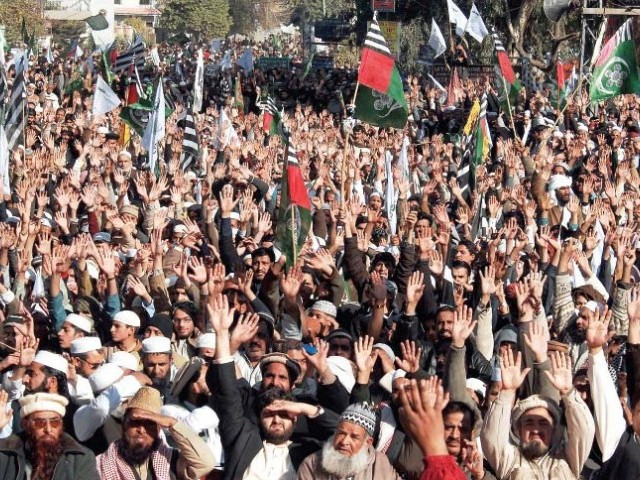There was once an Ahmadi friend of mine who confided to me that no matter how hard she tries to identify herself as a Pakistani, her experiences of a lifetime of ‘otherisation’ and always being at the receiving end of misery do not allow her to do so. From her school days, to growing up in a neighborhood which regarded her as an Ahmadi first and then anything else, to watching people belonging to her community being ostracized, it was one incident after another of constant singling out, being branded as a ‘kafir’, ‘outcast’ and ‘un-Pakistani’ that molded her experiences.
Then, there were these reports of sectarian strife gripping Khurram Agency last week. Shias in Parachinar were the target of a suicide attack and over 30 innocent lives were lost, all because of bigotry and intolerance. The only thought that comes to my mind when I consider this attack, or what my friend used to say about her life experiences, is that how can the people who spread such bigotry and hate not know of the example of the Holy Prophet (PBUH) himself. Did the Holy Prophet (PBUH) not send Muslim refugees to Abyssinia and Christian Negus, to flee persecution? Does that not mean that he did not think that the sole criterion for judging a person was his or her creed?
History’s ultimate lesson in state-making has been to devise measures that tend to include a variety of perspectives, ethnicities, polities, religions as one single, national narrative. Those states which were able to do so survived war, economic slumps and natural catastrophes. Those which were unsuccessful on that count were relegated to the obscure annals. Pakistan has been incapable of doing that. Its founder extolled freedom of worship as a foremost pillar of state, while his successors only excluded, singled out and branded people on the basis of their beliefs.
Religion is beautiful — and it can be even more so if it is not used as a constant source of division. We, as Pakistanis, have a moral obligation as well as a national duty to embrace the ‘other’, the ‘left out’ and the ‘outcast’. Otherwise, we too run the risk of being relegated to the abyss; the darkness where only ignorance rules and death awaits.
Read more by Taimur here.
My friend, the outcast
From her school days, to college everyone regarded her as Ahmadi first.



COMMENTS
Comments are moderated and generally will be posted if they are on-topic and not abusive.
For more information, please see our Comments FAQ